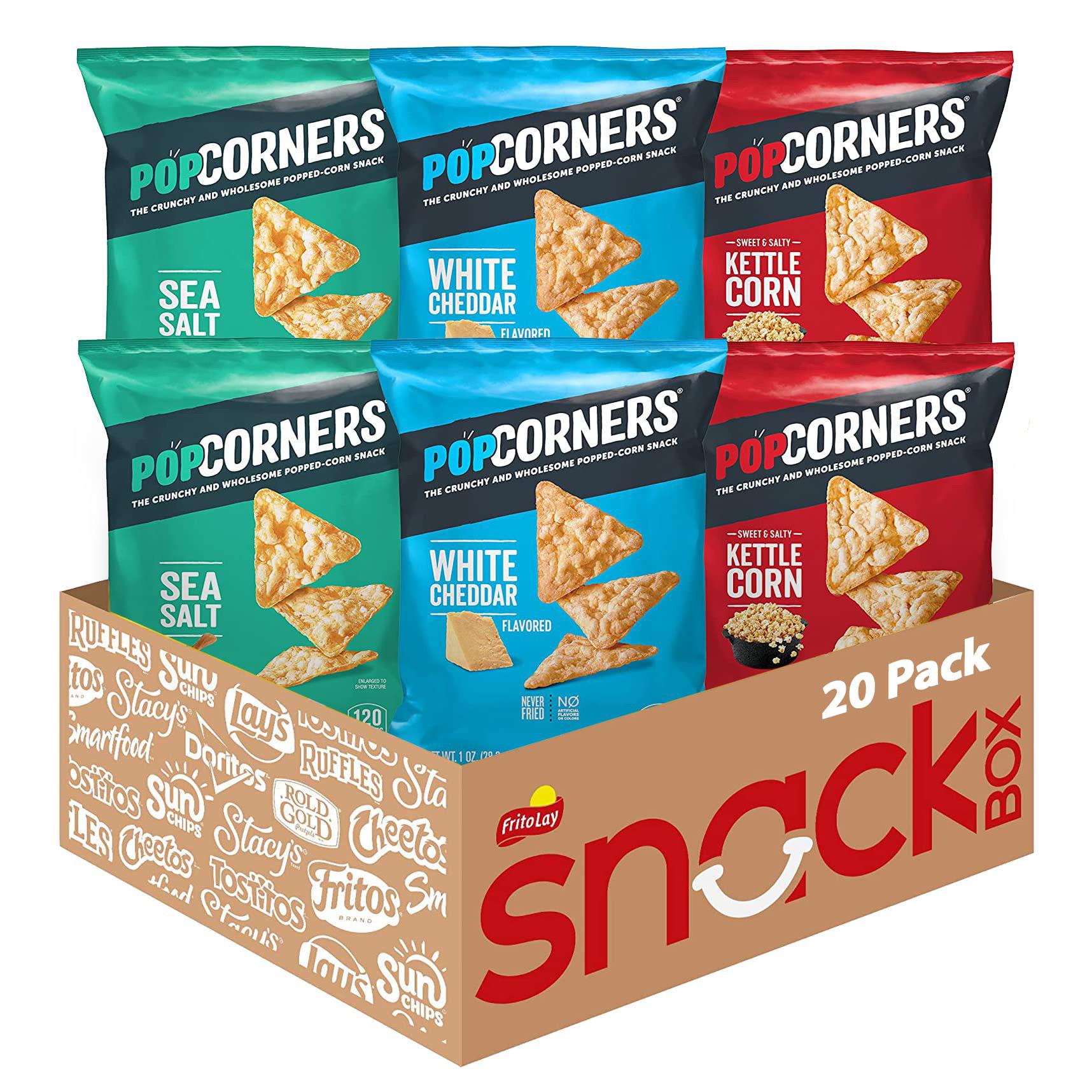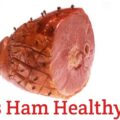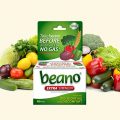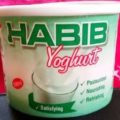Popcorners are a type of snack that combines the satisfying crunch of popcorn with the convenience of a chip. They are made by popping whole corn kernels and then shaping them into triangular pieces. The result is a light and crispy snack with a unique texture.
One of the main advantages of Popcorners is that they are air-popped, meaning they are not fried in oil like traditional potato chips. This process reduces the overall fat content compared to fried snacks, making them a healthier alternative. They are also gluten-free and typically made with non-GMO corn.
Popcorners come in a variety of flavors, ranging from classic buttery and salty options to more adventurous and unique tastes. Some popular flavors include Sea Salt, Kettle Corn, White Cheddar, Sweet Chili, Jalapeño, and more. This wide range of flavors caters to different taste preferences, ensuring there’s something for everyone.
The convenient triangular shape of Popcorners makes them easy to grab and enjoy on the go. They are often found in single-serving bags, making them a convenient option for snacking at work, school, or while traveling. They can be enjoyed on their own or paired with dips, spreads, or even used as a topping for salads or soups.
Popcorners Nutrition
The nutritional content of Popcorners can vary slightly depending on the flavor and specific product variation. However, I can provide you with a general overview of the typical nutritional profile of Popcorners.
Keep in mind that the values provided below are approximate and can vary between different flavors and product formulations. It’s always a good idea to check the specific packaging or consult the manufacturer for precise nutritional information.
Here is an example of the nutritional information for a standard serving size (usually around 28 grams or 1 ounce) of Popcorners Sea Salt flavor:
- Calories: Around 120-140 calories
- Total Fat: Approximately 4-6 grams
- Saturated Fat: Less than 1 gram
- Trans Fat: 0 grams
- Cholesterol: 0 milligrams
- Sodium: Around 100-200 milligrams
- Total Carbohydrates: Approximately 20-22 grams
- Dietary Fiber: Around 2 grams
- Total Sugars: Typically less than 1 gram
- Protein: Approximately 2 grams
It’s important to note that these values can vary based on the specific flavor, as some flavors might contain additional ingredients that affect the nutritional content, such as added sugars or seasonings. Therefore, it’s always a good idea to check the nutrition label of the specific Popcorners product you are consuming to get the most accurate information.
Additionally, it’s worth noting that portion sizes can vary, so be mindful of how much you consume to manage your overall calorie and nutrient intake.
Are Popcorners Healthy?
When it comes to snacking, finding a balance between taste and health is often a challenge. One option that has gained popularity in recent years is Popcorners. But are Popcorners truly a healthier alternative to traditional snacks? Let’s delve deeper and explore the benefits they offer.
Popcorners are made from popped corn kernels and come in various flavors. As a whole, they tend to be lower in fat and calories compared to traditional fried snacks like potato chips. Additionally, they are typically gluten-free and made with non-GMO corn, appealing to individuals with specific dietary needs.
- Reduced Fat Content: Since Popcorners are air-popped instead of being fried in oil, they generally have a lower fat content. While the exact values may vary between flavors and product variations, they typically contain around 4-6 grams of total fat per serving, with little to no saturated fat.
- Moderate Calorie Count: Popcorners can be a satisfying snack while still being relatively moderate in calories. With an average of 120-140 calories per serving, they provide a flavorful option for those seeking a snack that won’t derail their daily calorie goals.
- Whole Grain Benefits: Whole grains are an important component of a balanced diet, offering various nutrients and dietary fiber. Popcorn is considered a whole grain, and since Popcorners are made from popped corn kernels, they retain some of the benefits. They often contain around 2 grams of dietary fiber per serving, aiding in digestion and providing a feeling of fullness.
- Flavor Variety: Popcorners offer a wide range of flavors to cater to different taste preferences. From classic Sea Salt to White Cheddar, Kettle Corn, Sweet Chili, and more, these options provide versatility without compromising on the snacking experience.
In general here are the advantages and disadvantages of Popcorners.
Pros of Popcorners:
- Healthier Option: Compared to traditional fried snacks like potato chips, Popcorners are often considered a healthier alternative. They are air-popped, reducing the amount of fat used during the manufacturing process. This results in a snack that generally contains lower total fat and calories, making them a more wholesome choice for those mindful of their health and weight.
- Whole Grain Benefits: Popcorn is made from whole corn kernels, which means it retains some of the benefits of whole grains. Whole grains are rich in dietary fiber, vitamins, and minerals. Popcorners, being made from popped corn kernels, can contribute to your daily whole grain intake and provide some of these nutritional benefits.
- Gluten-Free and Non-GMO: For individuals with dietary restrictions or preferences, Popcorners offer options that are gluten-free and made with non-GMO corn. This makes them suitable for those with celiac disease or gluten sensitivities, as well as individuals seeking non-genetically modified food products.
- Variety of Flavors: Popcorners come in a wide array of flavors, catering to different taste preferences. From classic options like Sea Salt to more adventurous flavors like White Cheddar, Kettle Corn, and Sweet Chili, there is a flavor to suit almost everyone’s palate.
Cons of Popcorners:
- Sodium Content: One of the potential drawbacks of Popcorners is their sodium content. While the exact amount can vary depending on the flavor, some varieties may contain higher levels of sodium. It’s important to be mindful of your sodium intake, especially if you have certain health conditions such as high blood pressure or are on a low-sodium diet.
- Potential for Overeating: The light and crispy texture of Popcorners can make them quite addictive. This may lead to mindless snacking or overeating, which can negatively impact your overall calorie intake and weight management goals. Practicing portion control and being mindful of serving sizes is crucial to prevent excessive consumption.
- Added Ingredients: Some flavors of Popcorners may contain added ingredients such as flavorings, seasonings, or sweeteners. It’s important to read the ingredient list and nutrition labels to be aware of any potential additives or allergens if you have specific dietary concerns or preferences.
- Not a Substitute for Nutrient-Rich Foods: While Popcorners can be a part of a balanced diet, it’s important to remember that they should not replace nutrient-rich foods such as fruits, vegetables, whole grains, and lean proteins. These snacks should be enjoyed in moderation and accompanied by a well-rounded diet to ensure you’re meeting your nutritional needs.
Healthy Snacking Tips
While Popcorners can be part of a balanced diet, it’s essential to keep a few considerations in mind:
- Portion Control: As with any snack, it’s crucial to be mindful of portion sizes. Stick to the suggested serving size (typically around 1 ounce or 28 grams) to manage your overall calorie and nutrient intake effectively.
- Ingredient Awareness: While Popcorners are generally considered a healthier snack, it’s important to read the ingredient list and nutrition label to be aware of any added sugars, artificial additives, or potential allergens, especially if you have specific dietary requirements or preferences.
- Balanced Eating: Remember that snacking should be complemented by a well-rounded, nutrient-dense diet. Incorporate a variety of fruits, vegetables, lean proteins, and whole grains to ensure you’re meeting your body’s nutritional needs.
Conclusion
Popcorners can be a healthier alternative to traditional fried snacks, offering a satisfying crunch, lower fat content, and a range of flavors. As part of a balanced diet, they can provide a tasty snacking option while still considering calorie intake and nutritional needs. However, it’s important to practice portion control and be mindful of the specific flavor variations and ingredient lists to make informed choices. Ultimately, with moderation and a well-rounded diet, Popcorners can be enjoyed as a part of a healthy lifestyle.






